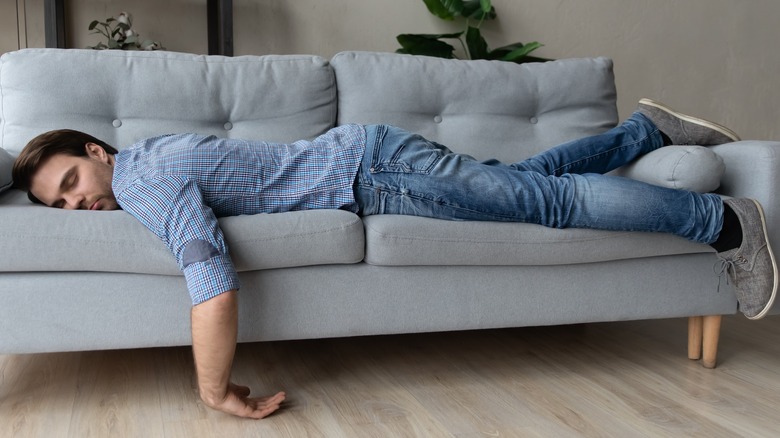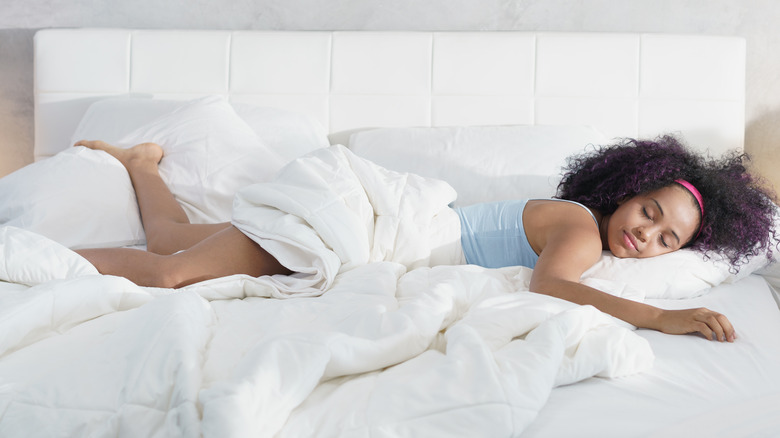Study Finds People Who Nap Regularly Have A Higher Risk For High Blood Pressure And Stroke
If you love curling up on the sofa for a midday nap, you'll probably be disappointed to learn that napping may not be the healthiest activity. A recent study published on July 25 in the American Heart Association's Hypertension journal revealed correlations between regular napping and a greater risk of high blood pressure and stroke. The study analyzed the sleeping habits and health of 358,451 people. Researchers linked daytime napping frequency to increased blood pressure, hemorrhagic stroke, and ischemic stroke, which is the form of stroke associated with regular napping.
To differentiate between ischemic and hemorrhagic strokes — the two types of strokes — a hemorrhagic stroke occurs when bleeding in or around the brain area prohibits brain function. Ischemic stroke occurs when the blood vessels that transport blood to the brain are either blocked or clogged (per MedicineNet). "Many people who take naps may do so because of poor sleep at night," Michael Grandner, a sleep researcher from the Banner-University Medical Center who was not involved in the study, told CNN. "Poor sleep at night is associated with poorer health, and naps are not enough to make up for that."
The study found that frequent daytime napping is most harmful to people under the age of 60. Regular napping can increase their risk of high blood pressure by 20%, compared to peers who infrequently or never nap during the day.
Importance of sleep hygiene
Sleep hygiene is essential to reduce the risk of many health conditions. Per the Centers for Disease Control and Prevention (CDC), disrupted or lack of sleep can lead to an increased risk of chronic diseases, like obesity, diabetes, heart disease, and depression. These conditions, alongside others, are linked to premature death. Ensuring you're getting enough sleep is critical for your health and longevity. Each night, the CDC recommends that adults get a minimum of seven hours of sleep.
Getting enough sleep at night will keep the urge to nap during the day at bay. This is where good sleep hygiene and positive habits come into play, which can sometimes be tricky in today's modern world. Tips for achieving quality sleep include not drinking caffeine before bed and sticking to a consistent sleep schedule that involves going to bed and waking up at the same time each day (with variations of no more than 20 minutes from day to day). Eliminating light — especially blue light — from your bedroom can also help, which means leaving your phone and other electronics in another room while you snooze (via American Sleep Association).
If you're unable to fall asleep, don't remain awake in bed for more than 10 minutes. Instead, engage in a calming activity or simply try sitting in a chair in a dark room until you feel tired. Most importantly, avoid daytime naps — they not only disrupt your sleep schedule but also come with health risks.


